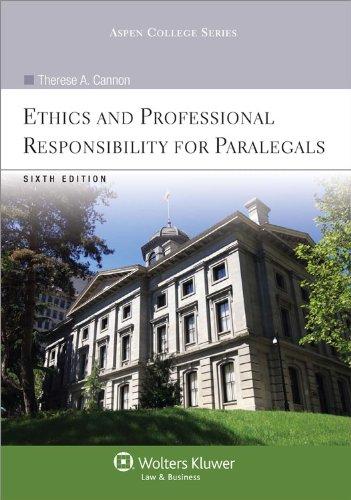Child Support Collections (CSC), a debt collection agency, retained Struthers in December 1989 to work with another
Question:
Child Support Collections (‘‘CSC’’), a debt collection agency, retained Struthers in December 1989 to work with another lawyer who had been handling CSC’s cases. The following day, the first lawyer resigned. . . .
When Struthers started with CSC, the agency was owned by Robert Hydrick and run in large measure by John Star, neither of whom was an attorney. . . .
In 1990, at Struthers’ suggestion, Hydrick dissolved CSC. This occurred during an investigation by the State Banking Department intoallegations of irregularities in CSC’s handling of client funds and that Star was holding himself out as an attorney. Struthers knew about and even represented Star and Hydrick in these matters.
When Hydrick dissolved CSC, Struthers superficially converted its operations into a law practice. In reality, however, CSC simply continued to operate. Star and Hydrick formed a new entity called MIROVI Inc., which was supposed to act as a managing company, providing support personnel and services for Struthers’ practice. Star and Hyrick became Struthers’ ‘‘legal assistants.’’
From the beginning of Struthers’ association with CSC, he had a very large case load. At first he took over from his predecessor about 250 cases, but this number later rose to nearly 750. Although Struthers nominally maintained his status as an independent attorney, CSC (now MIROVI)
staff ran his office, his accounting system and performed other tasks, such as conducting client interviews. . . . Under these circumstances, many of the formalities of a law firm were abandoned, giving rise to a number of the violations discussed below. [The violations related to client trust accounts, scope of representation, diligence, communication, fees, safekeeping client property, terminating representation, and professional independence.]
We examine in detail some of the more egregious violations . . . in four categories . . . [including supervision of] nonlawyer assistants. . . .
It is important to note that lawyers are often responsible for the actions of their nonlawyer assistants. Ethical Rule 5.3
(a) provides that a lawyer in Struthers’ position shall ‘‘make reasonable efforts to ensure that the firm has in effect measures giving reasonable assurance’’ that nonlawyer assistants conduct themselves according to the rules for lawyers. . . .
In the present case, however, Struthers virtually abandoned responsibility for running his office to Star and Hydrick. Although Struthers knew that the Banking Department has charged Star and Hydrick with serious improprieties, he gave them total control of his office and unfettered access to his trust fund. . . .
[H]e knew about Star’s dishonesty early in their relationship. Struthers admitted to the Committee that although Star told him he was an attorney licensed in other states, Struthers knew from that start this was not true. . . . Although there may often be some question of what is a reasonable effort to ensure proper conduct......
Question about the Case 1. What functions did the nonlawyers perform in the lawyer’s office?
Can each of these duties be properly delegated to a nonlawyer and supervised?
2. Did these ‘‘legal assistants’’ meet any of the definitions of paralegal or legal assistant in this chapter? If not, what is lacking in their background?
3. Could the lawyer have set up a collections practice with a large caseload and run it in a manner that would comport with ethics rules?
Describe how. Note that the court refers to recruiting, delegating, and supervising paralegals. Define each one of these aspects of a lawyer’s responsibility for paralegals.
4. Do you think that the lawyer should have been disbarred? What do you think should have happened to Hydrick and Star? Can you use this case to argue for regulation of paralegals?
Step by Step Answer:

Ethics And Professional Responsibility For Paralegals
ISBN: 272860
6th Edition
Authors: Therese A. Cannon





